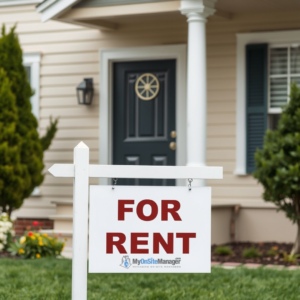Generation Z—those born between the mid-1990s and early 2010s—are stepping into adulthood during a time of significant economic upheaval. From rising inflation to stagnant wages and sky-high rent, they’re facing challenges that older generations didn’t encounter at the same stage of life. A new report featured by AZ Big Media reveals that 49.8% of Gen Z renters are rent-burdened, spending more than 30% of their income on rent.
This statistic highlights a growing crisis in housing affordability—especially for younger renters trying to build stable, independent lives.
Understanding Rent Burden
The U.S. Department of Housing and Urban Development defines being “rent burdened” as spending more than 30% of monthly income on housing. When renters exceed this threshold, they often have to cut back on other essentials like food, transportation, healthcare, and savings—putting their long-term financial stability at risk.
For Gen Z, many of whom are still early in their careers or pursuing higher education, this burden is especially heavy. Despite being digital natives with a drive for flexibility and freedom, many are struggling just to afford a roof over their heads.
Why Gen Z Is Hit Harder
Several factors contribute to this generational strain:
-
Stagnant Wages vs. Rising Rent: Entry-level salaries have not kept pace with rising rental prices. In competitive urban markets like Los Angeles, New York, and Phoenix, rent prices can easily consume a large chunk of a young adult’s paycheck.
-
Cost of Living Crisis: Beyond rent, the cost of food, transportation, and utilities has increased significantly post-pandemic. The inflation spike of 2022–2023 has left lasting effects, squeezing disposable income for young renters.
-
Student Loan Debt: Many Gen Zers are also managing student loans, further limiting their ability to afford rent without falling into debt.
-
Desire for Independence: Gen Z values autonomy and experiences. Many prefer living alone or with peers in urban hubs that offer job opportunities and vibrant lifestyles—despite the higher cost.
-
Limited Affordable Housing Supply: The demand for affordable rentals far outweighs the supply, especially in major cities. This lack of inventory forces many to settle for overpriced units or stretch their budgets unsustainably.
The Broader Impact
The fact that nearly half of Gen Z renters are rent-burdened has wide-reaching implications—not just for them as individuals, but for the economy and housing market as a whole.
-
Delayed Milestones: With such a large portion of their income going toward rent, Gen Z may delay major life decisions such as homeownership, marriage, or starting families.
-
Reduced Spending Power: When rent eats up disposable income, there’s less money circulating into other sectors of the economy, from retail to travel and services.
-
Increased Demand for Rental Support and Solutions: Property managers and developers may need to rethink how they serve this demographic. More flexible leasing terms, co-living spaces, and affordable micro-apartments may become increasingly relevant.
What Can Be Done?
As this issue gains more visibility, there are opportunities for change:
-
Policy Changes: Local and federal governments must prioritize affordable housing projects, rental assistance programs, and tenant protections.
-
Innovative Property Management: Property managers can attract Gen Z renters by offering value-driven amenities, transparent pricing, and more digital conveniences like virtual tours and online rent payments.
-
Financial Education: Empowering Gen Z with tools to manage budgets, build credit, and understand rental agreements can also help them navigate the market more effectively.
Final Thoughts
Gen Z is often characterized as adaptable, tech-savvy, and independent—but even their resilience is being tested in today’s rental climate. As rent burden becomes a widespread issue, it’s more important than ever for industry leaders, landlords, and policy makers to listen and respond with real solutions.
Housing shouldn’t be a luxury. For Gen Z—and future generations—it needs to be accessible, fair, and sustainable.
Source: Here’s how many Gen Z renters are rent burdened – AZ Big Media

